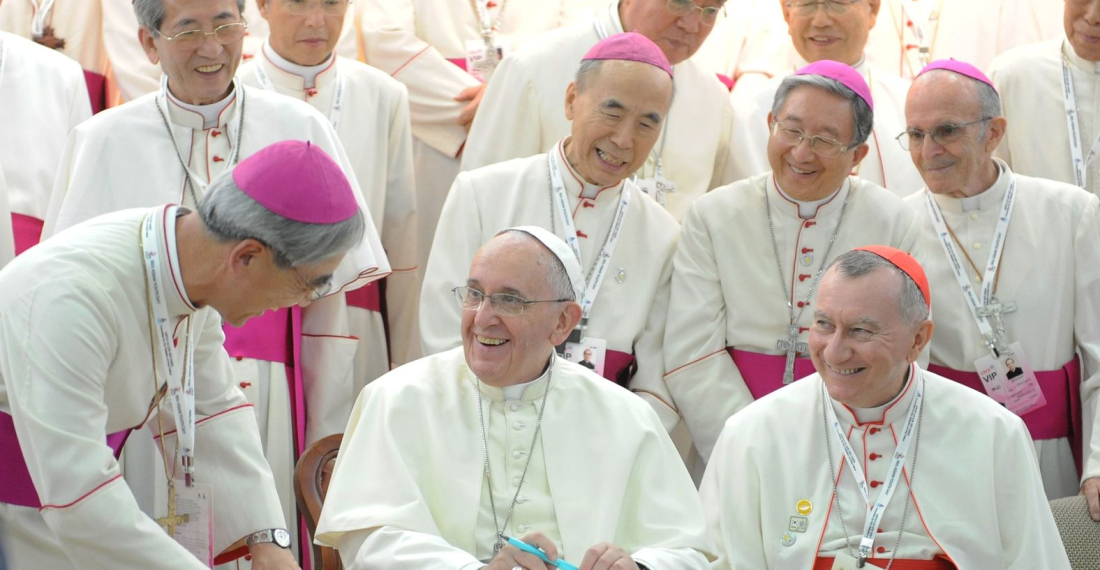Pope Francis, leader of the Catholic Church and of hundreds of millions of Catholics worldwide, died on Monday (21 April) aged 88. In the time he was Pope, since 2013, Pope Francis changed the Catholic Church, though his attempts to change the world through his numerous calls for peace failed.
Many Catholics had assumed the new pontiff would be a younger man - but Cardinal Bergoglio of Argentina was already in his seventies when he became Pope in 2013.
He had presented himself as a compromise candidate: appealing to conservatives with orthodox views on sexual matters while attracting the reformers with his liberal stance on social justice.
It was hoped his unorthodox background would help rejuvenate the Vatican and reinvigorate its holy mission.
But within the Vatican bureaucracy some of Francis's attempts at reform met with resistance and his predecessor, who died in 2022, remained popular among traditionalists.
Determined to be different
From the moment of his election, Francis indicated he would do things differently. He received his cardinals informally and standing - rather than seated on the papal throne.
On 13 March 2013, Pope Francis emerged on the balcony overlooking St Peter's Square.
Clad simply in white, he bore a new name which paid homage to St Francis of Assisi, the 13th Century preacher and animal lover.
He was determined to favour humility over pomp and grandeur. He shunned the papal limousine and insisted on sharing the bus taking other cardinals home.
The new Pope set a moral mission for the 1.2 billion-strong flock. "Oh, how I would like a poor Church, and for the poor," he remarked.
His last act as head of the Catholic Church was to appear on Easter Sunday on the balcony of St Peter's Square, waving at thousands of worshippers after weeks in hospital with double pneumonia. Jorge Mario Bergoglio was born in Buenos Aires, Argentina, on 17 December 1936 - the eldest of five children. His parents had fled their native Italy to escape the evils of fascism.
He enjoyed tango dancing and became a supporter of his local football club, San Lorenzo.
He was lucky to escape with his life after an initial and serious bout of pneumonia, undergoing an operation to remove part of a lung. It would leave him susceptible to infection throughout his life.
As an elderly man he also suffered from pain in his right knee, which he described as a "physical humiliation".
The young Bergoglio worked as a nightclub bouncer and floor sweeper, before graduating as a chemist.
At a local factory, he worked closely with Esther Ballestrino, who campaigned against Argentina's military dictatorship. She was tortured, her body never found.
He became a Jesuit, studied philosophy and taught literature and psychology. Ordained a decade later, he won swift promotion, becoming provincial superior for Argentina in 1973.
A man of simple tastes
He was named Auxiliary Bishop of Buenos Aires in 1992 and then became Archbishop.
Pope John Paul II made him a cardinal in 2001 and he took up posts in the Church's civil service, the Curia.
He cultivated a reputation as a man of simple tastes, eschewing many of the trappings of a senior cleric. He usually flew economy and preferred to wear the black gown of a priest - rather than the red and purple of his new position.
In his sermons, he called for social inclusion and criticised governments that failed to pay attention to the poorest in society.
"We live in the most unequal part of the world," he said, "which has grown the most, yet reduced misery the least."
As Pope, he made great efforts to heal the thousand-year rift with the Eastern Orthodox Church. In recognition, for the first time since the Great Schism of 1054, the Patriarch of Constantinople attended the installation of a new Bishop of Rome.
Pope Francis brought the Israeli President, Shimon Peres (left), and his Palestinian counterpart, Mahmoud Abbas, together to pray for peace in 2014
Francis worked with Anglicans, Lutherans and Methodists and persuaded the Israeli and Palestinian presidents to join him to pray for peace.
After attacks by Muslim militants, he said it was not right to identify Islam with violence. "If I speak of Islamic violence, then I have to speak of Catholic violence too," he declared.
Politically, he allied himself with the Argentine government's claim on the Falklands, telling a service: "We come to pray for those who have fallen, sons of the homeland who set out to defend their mother, the homeland, to claim the country that is theirs."
And, as a Spanish-speaking Latin American, he provided a crucial service as mediator when the US government edged towards historic rapprochement with Cuba. It is difficult to imagine a European Pope playing such a critical diplomatic role.
commonspace.eu with BBC (London) and agencies






